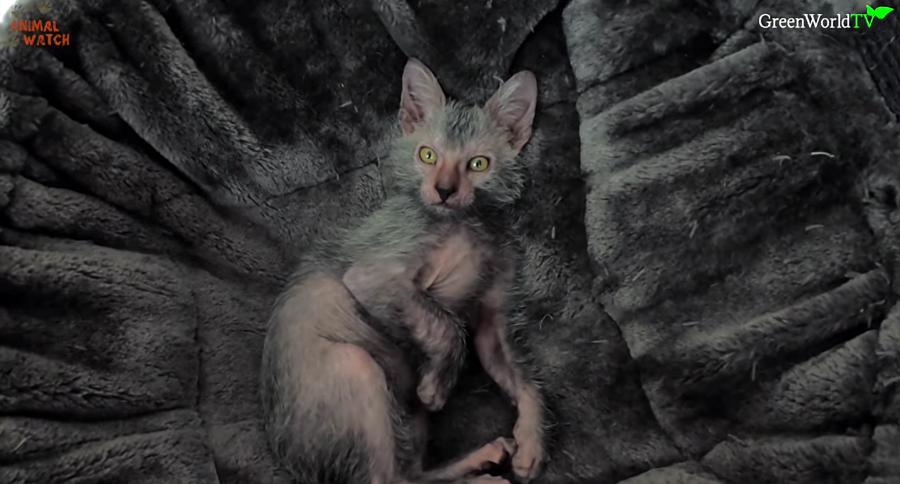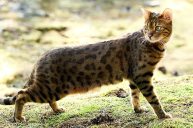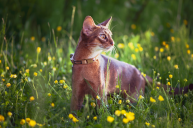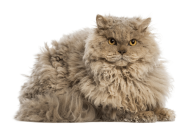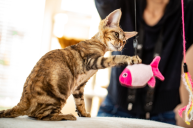Werewolves could be making an appearance in a household near you.
Well, more like werewolf cats. In 2011, cat breeders Johnny and Brittney Gobble welcomed the first kitten in their newly-created Lykoi breed line. "Lykoi" is derived from the Greek word for werewolf: "lycanthrope."
The Lykoi cat's unique appearance owes to a naturally occurring genetic mutation in the DNA of domestic shorthair cats. The mutation causes interruptions in hair growth, giving the Lykois a patchy, werewolf-like coat.
Understanding the Werewolf Cat
Lykoi cats are born without an undercoat, and most never grow hair around the eyes, nose, and toes. Moreover, the cats go through hair growth cycles during which they molt and lose nearly all of their coat hair. Needless to say, they don't look anything like your typical housecat.
According to Lykoi breeder Brittney Gobble, the mutation that gives the Lykoi cat its werewolf likeness has occurred in domestic cats over the past several decades. However, the Gobbles were the first to capitalize on it and make it the foundation of a new breed.
The Werewolf Cat Breeding Program
The Gobbles used cats from two unrelated litters to begin the breed line. The cats were tested to ensure that they both carried the same mutation and to rule out the possibility that their appearance was due to their genetic codes containing any DNA from either Sphynx or Devon cats.
Before beginning the breeding program, Johnny Gobble, a veterinarian, ran a battery of tests on the cats to determine whether or not their scraggly coats were a byproduct of disease or other underlying conditions. The cats then underwent further testing to ensure there were no dermatological or cardiac issues at play. The cats were deemed healthy, and the veterinary and genetic specialists who carried out the testing agreed that the hair pattern was a true, natural mutation, and not the result of any underlying medical conditions. Thus began the Gobble's breeding program.
The Gobbles have focused their breeding efforts on black cats because black cats seem to express the mutation most prominently. Since beginning their breeding program, the Gobbles have sought to expand the Lykoi gene pool by obtaining cats with the mutation from various locations throughout the country.
In addition to its distinctive appearance, the Lykoi's disposition is also a bit unusual among the world of cats. Friendly, curious, and affectionate, the Lykoi has earned itself the reputation of being dog-like in its disposition. It is a true feline outlier.
The Future of the Werewolf Cat
In September of 2015, the Gobbles presented the Lykoi to The International Cat Association (TICA) Board and received the designation of Advanced New Breed. The next step is for the breed to obtain Championship status, which the Gobbles hope to accomplish sometime in 2016.
Want to learn more about these unusual werewolf cats? Read all about them here.
This article was originally published November 23, 2019.
